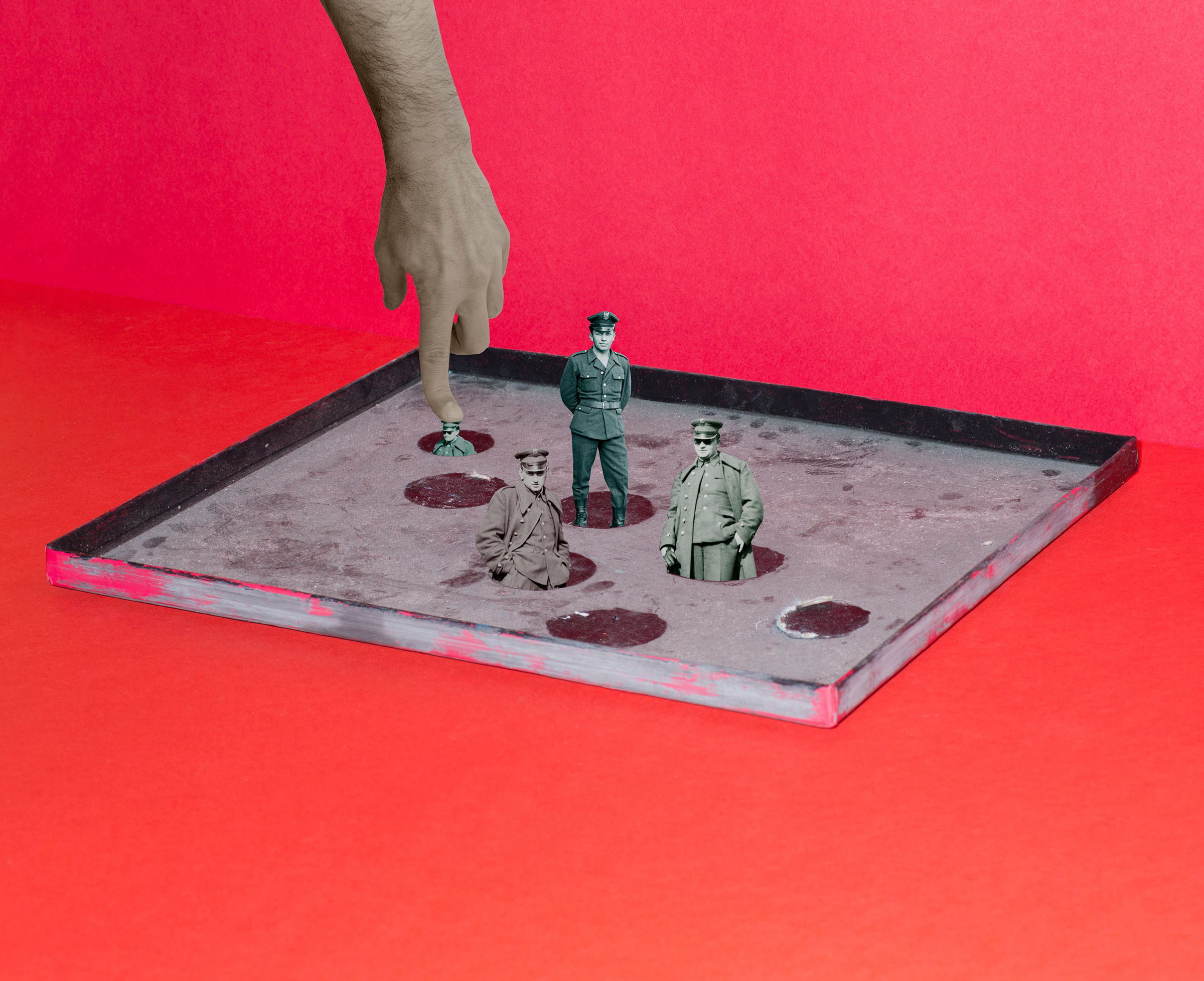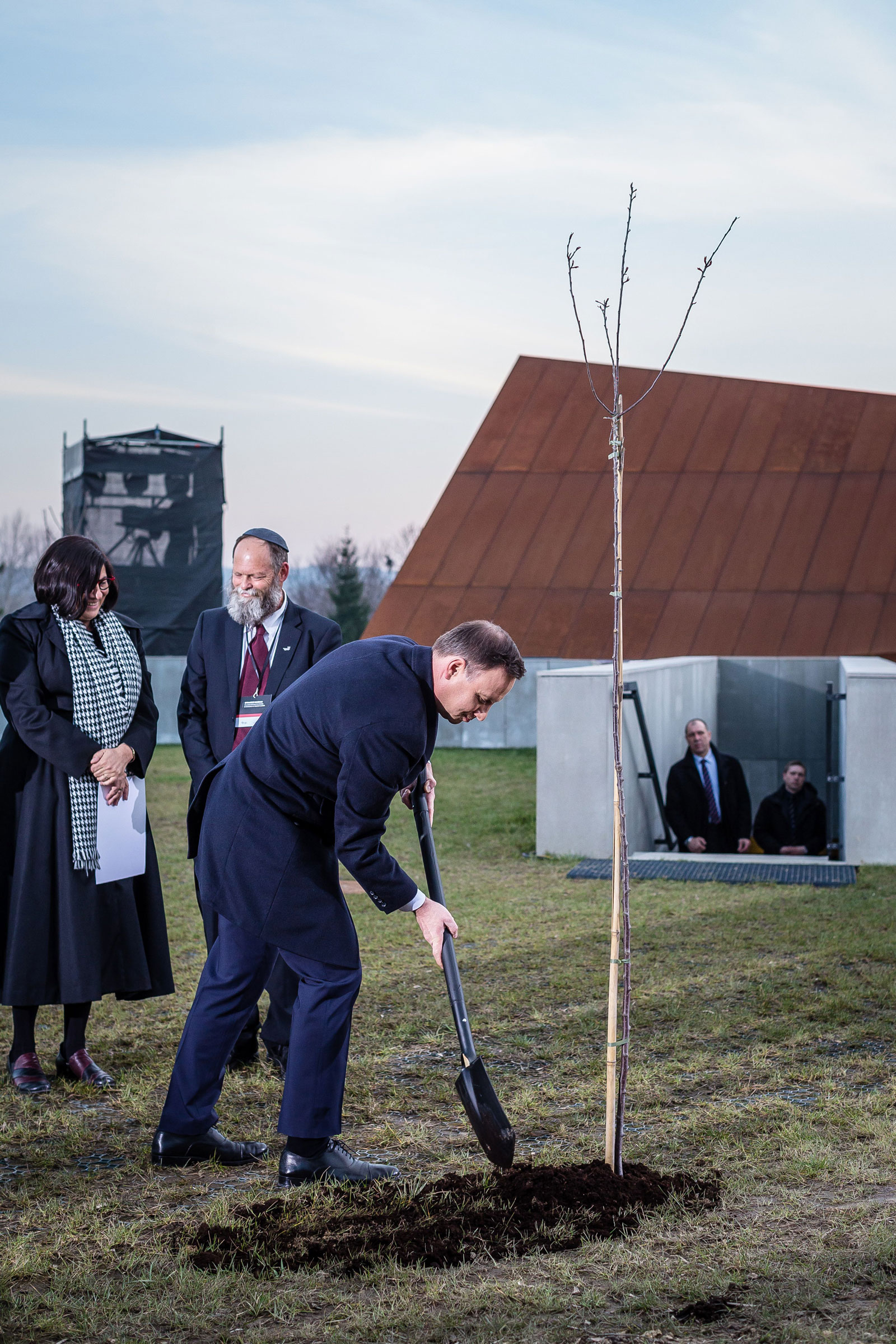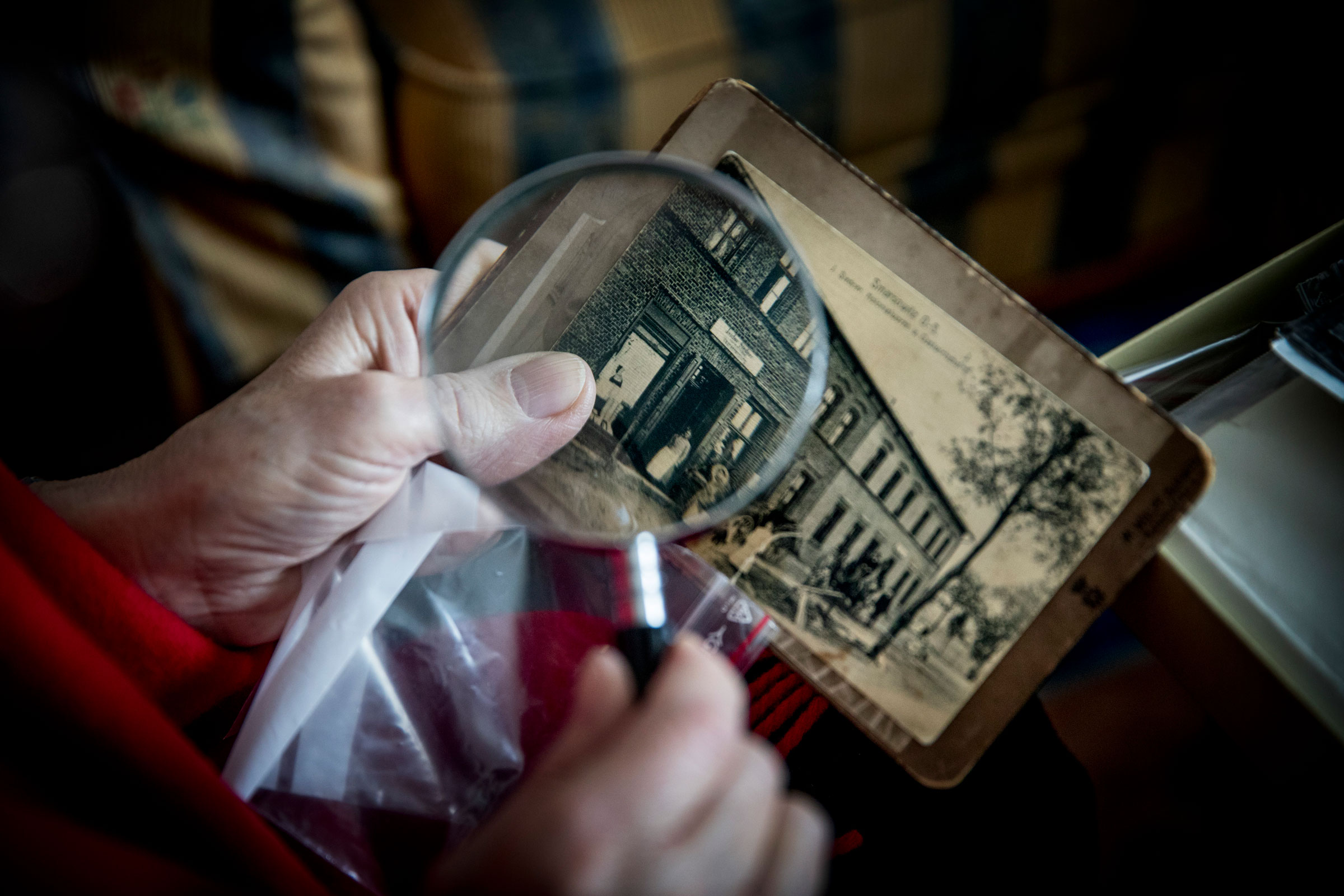
For years, Olympic slalom canoeist Dariusz Popiela, 37, trained on the Dunajec river in southern Poland. During his 20s, he paddled every day on a winding stretch between two bridges in the city of Nowy Sącz. But there was an enormous chapter of Popiela’s hometown that he never knew.
Popiela was shocked when he began to learn as an adult about how in 1942 nearly 12,000 Jewish residents from Nowy Sącz—then one-third of the city’s population—were transported to the neighboring Belzec death camp run by the Nazis. Many spent their final night in the city huddled on the same riverbank nestled between those two bridges that Popiela had passed every day. “They saw this same view. They heard the same river voices and sounds,” he says, as we stood alongside the town’s riverbank in May. But he was never taught any of it. “How is that possible?” he asks.
For Popiela, the answer is Poland’s failure to reckon with its past. In the decades after World War II, Polish-Jewish history was kept in what scholars call “the communist freezer.” Some 3 million Jews—90% of the country’s Jewish population—were murdered by the Nazis. But it wasn’t until after the fall of communism in 1989 that Poland began to discuss how to deal with the legacy of the Holocaust. That includes one of the most uncomfortable facts of Poland’s wartime history: that some Poles collaborated with the Nazis in the killing of Jews.
Today, that reckoning is being shut down under the nationalist government of Poland’s Law and Justice party (PiS) and through state-affiliated institutions. Chiefly, that includes the Institute of National Remembrance, or IPN in Polish, a one-of-a-kind bureaucratic creation that encompasses many disparate entities: Poland’s most prolific publisher of historical texts, a prosecutor’s office, a production house of historical films and games, and a major authority shaping what students are taught about history in school.

“Just being loyal” to the government is the IPN’s “main quality,” says Dariusz Stola, one of Poland’s leading historians at the Polish Academy of Science (PAN). “Not their academic record. Not their independence or standing among historians in Poland or in Europe.”
The IPN disputes this characterization. “In our work at the Institute of National Remembrance, we show pride in the Poles, in the fight for our independence, in the fight for our democracy, in the fight against the communists. And at the same time, we show a lot of people who betrayed the Polish nation,” says Mateusz Szpytma, the IPN’s vice president.
The IPN has seen its annual budget nearly double under PiS to 430 million PLN ($90 million) and it now has a staff of about 2,000 across 11 regional branch offices. The Institute’s president, elected by the Polish parliament for a five-year term, enjoys legal protections against prosecution or removal from office that are comparable only to those shared by the country’s President, Andrzej Duda, who took office in 2015.
The “Holocaust law”
It wasn’t always this way for the IPN. In 1998, under a short-lived center-right coalition government, Poland’s parliament first set up the Institute and tasked it with prosecuting crimes of the past and handling the communist security service’s archives. One of IPN’s first major tasks was to investigate the 1941 mass murder of hundreds of Polish Jews in the northeastern city of Jedwabne by their non-Jewish Polish neighbors. The IPN’s investigation prompted then-President Aleksander Kwaśniewski to apologize in 2001.
But today’s critics of the IPN say that PiS began to stock the Institute with loyalists not long after it swept to power in 2015. The biggest shift came in 2018 when the government passed what is widely referred to as both the “Holocaust law” and the “IPN law.” The law made it a criminal offense for anyone to claim “against the facts” that the Polish state was “complicit” during Nazi-era crimes. The controversial legislation came two years after Poland’s parliament wrote in 2016 that the “world does not know the reality that prevailed in Poland during the years of occupation, and it is this ignorance that hurts the good name of our country.” The Holocaust law was downgraded to a civil infraction later that year, but critics point out that the law’s continued existence politicizes—and chills—historical research.
Read More: Poland Just Passed a Holocaust Bill That Is Causing Outrage. Here’s What You Need to Know
Last year, the law became the backdrop of one of Poland’s most contentious court cases in recent memory. In the 2018 book Night Without End, edited by historians Jan Grabowski and Barbara Engelking, one chapter mentioned that the pre-war mayor of Malinowo, a village 70 miles northwest of Warsaw, had handed over Jews hiding in the town to Nazis. The case was brought against the historians by the octogenarian niece of Mayor Edward Malinowski, with financial support from the right-wing non-profit Polish League Against Defamation. The organization wrote in a lengthy statement that Grabowski and Engelking had damaged not only the reputation of the mayor but also of “other Poles, or even Poland.” During the trial, the historians were heavily criticized across Poland’s public broadcasters, which promote a nationalist and pro-government line that has long argued that the rest of the world under-appreciates Polish suffering during the Nazi occupation. A judge ruled in February 2021 that the two Holocaust historians had to apologize in print for “disseminating inaccurate information” about Malinowski.
Although Grabowski and Engelking appealed the case and won in August last year, Minister of Justice Zbigniew Ziobro called their victory a “judicial attack on justice” that allows historians to “lie with impunity.”

Night Without End also came under heavy scrutiny by the IPN’s team of researchers. The Institute looked at “each and every footnote to see if we made a mistake,” says Agnieszka Haska, a cultural anthropologist at the Polish Center for Holocaust Research, where Engelking is director. The result was a 72-page rebuttal (translations available here) criticizing the book, which the IPN distributed to libraries and other institutions around the country—even before giving Engelking’s center an opportunity to respond, according to Haska.
“We invited the [Polish Center for Holocaust Research] to respond to this review on our website, but unfortunately, they did not accept our invitation,” says the IPN’s Szpytma. Haska says the Center decided that sending their response for republication on the IPN’s website would be “pointless,” but it did publish a response on its website, which forcefully criticized the IPN’s rebuttal as more of a political hit job than a work of scholarship.
Other scholars echo Haska’s criticisms of the IPN. “The IPN is a factory producing nationalistic discourse. There’s just no need for such a powerful machine that combines the powers of archives, prosecution power, academic research, and education,” says Pawel Dobrosielski, a culture studies scholar at the University of Warsaw’s Institute of Polish Culture.
“Research on history should only be done in academic institutions where politicians cannot appoint their cronies,” adds PAN’s Stola.
Some experts TIME spoke with went beyond criticism of the IPN and linked its activities to the current government’s electoral fortunes, seeing a government-sanctioned view of history as rallying a patriotic base that has benefited PiS. “First you win hearts and minds, and then you win elections,” says Valentin Behr, a political scientist at the Paris Institute for Advanced Study. Behr says that the government has been effective at using institutions like the IPN to “strengthen their camp in Polish society and in the public debate.”
“History as it was”
That Poland suffered immensely during World War II is indisputable. Beyond the death of 3 million Jews, an additional 3 million non-Jewish Poles perished. Millions more people were uprooted from their homes and Poles were used for forced labor during the Nazi occupation.

It is also indisputable that some Poles hid and aided Jews during the Nazi occupation. Israel’s World Holocaust Remembrance Center has recorded over 7,000 cases of Poles helping Jews during the war, which is more than any other country. But the government has managed to elevate these stories and downplay some of the more uncomfortable facts about Poland’s wartime history—and not just through the areas the IPN has direct control over. The IPN does not run any of Poland’s museums, which receive millions of visitors a year, but many museum directors are appointed by the government.
Read More: 40 Miles From Auschwitz, Poland’s Jewish Community Is Beginning to Thrive
In 2017, Minister of Culture Piotr Gliński effectively axed the director of the Museum of the Second World War in Gdansk and replaced him with Karol Nawrocki—a historian close to PiS who now heads the IPN—citing a desire for the museum to present “the Polish point of view.” The exhibits at the museum have since changed to focus more on Polish suffering during the war. Similarly, the Museum of the Warsaw Ghetto Uprising hasn’t opened yet but is drawing accusations of politicizing history by skirting around stories of collaboration by non-Jewish Poles. Gliński has said the exhibitions would showcase the “mutual love” between Poles and Jews.
“As a Polish citizen, a Polish researcher, I’m totally into commemorating these rare exceptions of noble Poles who were brave enough to somehow oppose this wartime reality,” says Maria Kobielska, who co-founded the Research Center For Memory Cultures at Jagiellonian University in Kraków. But she says she is concerned that these exceptions are used to paint a false sense of scale.
Some data bears out Kobielska’s concerns. A recent survey of 1,874 people in Poland that asked how many Poles “selflessly helped” Jews during World War II found the most common answer was 60%. That’s a vast overestimate, according to historians. Kobielska also cites the many examples she encountered in her research of Poles who kept their stories of saving Jews a secret for decades, because of fear of being ostracized. “These people lived in Poland for 50 years after the war and they died still hiding that they did something extraordinary,” she says.
The IPN’s Szpytma disputes the notion that it is whitewashing Polish history. “For me, personally, it’s important to show history as it was,” he says, adding that both the good and bad sides of Polish history are “strongly present” in the Institute’s work.

But critics of both the government and the IPN see things differently—and are taking matters into their own hands. Popiela is spearheading commemoration work to shine light on Poland’s wartime history with his foundation “People, Not Numbers,” which takes up nearly all his spare time. With nearly a dozen volunteer organizers, including his wife and relatives, he has managed to raise tens of thousands of dollars from crowdfunding—enough money to install 10 commemorative monuments across Poland. The organization has also discovered 10 mass Jewish grave sites, and a new memorial park in Nowy Sącz’s former Jewish ghetto opened last month.
For Popiela, he plans to continue charting his own path to help Poles learn the truth about their country’s past. “The narrative of the IPN is that nearly all Polish people had a Jew hidden in their basement,” he says. “They are saying that we were all heroes. But from the archives, it doesn’t look so nice.”
More Must-Reads from TIME
- Introducing the 2024 TIME100 Next
- The Reinvention of J.D. Vance
- How to Survive Election Season Without Losing Your Mind
- Welcome to the Golden Age of Scams
- Did the Pandemic Break Our Brains?
- The Many Lives of Jack Antonoff
- 33 True Crime Documentaries That Shaped the Genre
- Why Gut Health Issues Are More Common in Women
Contact us at letters@time.com